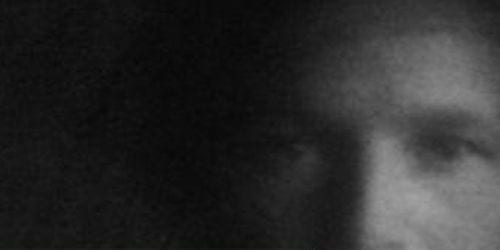
Happy Families are all alike; every unhappy family is unhappy in its own way.
— Leo Tolstoy, Anna Karenina
Brian Moore, an Irish writer who died in 1999, revisits many of the themes in his acclaimed novel, The Lonely Passion of Judith Hearne, in 1979’s The Mangan Inheritance, here re-released as part of the terrific New York Review of Books Classics series. Both novels explore Irish Catholicism, the Church’s long reach, loneliness, alcoholism, and the ugliness of poverty. Each features failed poets and soft, dependent men. But where Judith Hearne is a scathing social critique, The Mangan Inheritance investigates one human soul.
James Mangan, Jamie to his family, is a failed poet married to rising actress Beatrice Abbott. The couple inhabit a large New York City apartment, living an increasingly glamorous life until Abbott divorces Jamie, leaving him wealthy and adrift. Longing to escape the insular city and its catty inhabitants, Jamie travels to Montreal to spend the New Year holiday his father, Pat, and young stepmother, Magrethe.
As Magrethe skis, father and son begin sifting through family history, delving into boxes, papers, and old photographs. To his amazement, Jamie finds an 1849 daguerreotype of the minor Irish poet James Patrick Mangan; the men could be twins. Inspired, awed, imbued with a new sense of self-confidence, Jamie immediately decides to travel to Ireland, where he intends to unravel the mystery of the man in the daguerreotype.
Moore’s Ireland would be a mocking stereotype were it not so woefully rendered, a beautiful, inhospitable place of strong weather and worn, impoverished individuals, many destroyed by alcoholism. Tinkers—the Irish equivalent of gypsies—travel the land in shabby groups. The remnants of ancient buildings dot sparsely populated hills.
Following old records and the family Bible, Jamie drives to Drishane, a remote Irish village where the sole hotel has closed for the off season. Taken in by Seamus Feeley, a sort of businessman, Mangan is given a house to rent only to be rudely dismissed by the owner, Dinny Mangan. Despite the family connection, Dinny wants no part of Jamie’s enterprise. Rather, he wants Jamie to go home.
Dinny is not unusual: all of Drishane treats Jamie strangely. Everyone stares at him. Some refuse to speak with him. Others are helpful, only to abruptly clam up. Gradually it emerges that Jamie resembles both his ancestor and a contemporary, the poet Michael Mangan, recently dead, author of an unknown wrong. Rather than divert him, the villagers’ behavior only strengthens Jamie’s resolve to research the Mangan family history. James Clarence Mangan is all he has left, a remnant of himself he hopes will get him writing poetry again.
A visit with the local priest confirms there are several surviving Mangans in the vicinity, split in two factions: the poor but clean Dinny and his mother, Eileen, and their cousins, siblings Conor and Kathleen. Despite being warned away from brother and sister, Jamie wends his way up the steep hill where the pair live in squalor. The family manor, Gorteen, sits in ruins nearby, its roof leaking, the grand old rooms and their furnishings wrecked by damp and rats. Kathleen and Conor inhabit a “caravan,”—a camper–a short distance from the house. Kathleen is a mere 19 to Jamie’s 36, a beautiful, troubled alcoholic speeding down the highway to hell. Conor, a midget, drinks even more than his sister and is frequently in trouble with the law.
When Kathleen realizes this American cousin, whom she calls Jim, has enough money to keep them in food and fry-ups, she expertly seduces him. Despite his age and supposed maturity, Jim is helpless before his skilled cousin’s wiles, or is willing to be helpless, for once in Ireland, the meek, resentful Jamie changes. He is well aware that sleeping with a vulnerable 19-year-old is a bad idea, yet allows his lust to overpower any moral qualms. He falls easily into drinking far too much, quickly becoming involved in the siblings’ sleazy lives.
There’s a sort of daring to it, a devil-may-care attitude; he’s no longer the sullen married Jamie, anonymously slinking along beside his famous wife. He is Jim now, a Mangan from a long line of Mangans, men like him, who write poetry, misbehave, and bear his face.
The book is crammed with action, the plot skewing and tilting almost as crazily as its drunken inhabitants. The writing is dense and dark, the Irish landscape entering the reader’s head like a fog. At times Moore is overly fond of employing the same adjectives—Kathleen is always beautiful, her breasts youthful and perky, and Seamus Feeley has a rubbery face with a dolphin-like aspect. Yet even the repetitiveness helps cast a spell over the reader, who ends up feeing like she’s reading in the rain no matter the weather.
The plot rolls forward, gaining density like an Irish gothic version of Jane Eyre, until finally Jim meets a man able and willing to give him the entire sordid story of the family Mangan. The conclusion leaves the reader to decide whether or not Jamie has emerged a better man for his efforts.

![Call for Papers: All Things Reconsidered [MUSIC] May-August 2024](https://www.popmatters.com/wp-content/uploads/2024/04/all-things-reconsidered-call-music-may-2024-720x380.jpg)



